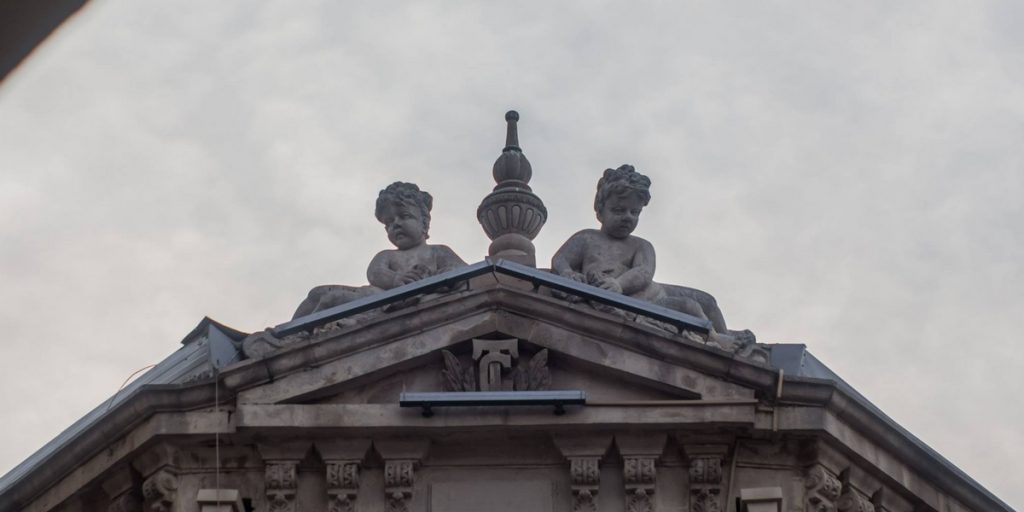Baku residents discuss when a conflict can be considered resolved
“The Karabakh conflict has been resolved”, Azerbaijani President Ilham Aliyev stated more than once. Although the popularity of the president after the war of 2020 is higher than ever, not everyone agrees with him on this issue.
In Azerbaijan, opinions regarding the resolution of the conflict and the prospects of the negotiation process vary. We decided to ask local residents at what point, in their opinion, the conflict between two abstract countries can be considered resolved.
Of course, the discussion of the abstract conflict naturally turned into a discussion of the Karabakh conflict.
So far, the poll has only been conducted in Azerbaijan, but in the future, it will be interesting to ask residents of Armenia the same question.

The respondents of our small survey do not represent the entire Azerbaijani society. However, the survey revealed some interesting tendencies in people’s reasoning, and, in addition, showed the existence of alternative positions and opinions along with the “mainstream” ones.
Many respondents consider it necessary for a third country to intervene in the conflict.
None of the randomly selected twenty respondents believed that the conflict was resolved.
All respondents expect a solution to the conflict from politicians and believe that the further reconciliation of peoples would happen naturally.
The possibility of cooperation and coexistence with the former “enemy” is not only not ruled out by the respondents, but sometimes is considered a pre-condition for conflict resolution.
The survey was conducted anonymously, so we did not invent names for the respondents. Here are some of the typical answers:

Doctor, 27 years old
A conflict can be considered over when both sides are satisfied with its resolution. It is possible, although it rarely happens. Such a decision may not correspond to historical justice, all the expectations of both sides, or even the norms of international law, but it will still be right.
The main condition for resolving any conflict is the exclusion of its recurrence in the future, the exclusion of bloodshed. Sometimes, for this purpose, one of the parties to the conflict agrees to violate its own territorial integrity.
It seems to me that time plays an important role in a civilized society – the new generation will come, and the conflict will be forgotten. But if we are talking about an authoritarian society, then everything depends on the political will of the leader.
Pensioner, 63 years old.
If two small countries are at war, and they have to decide the fate of their conflict, then everything will be difficult. A much bigger country will have to intervene. This third state must make a fair decision. One state is told “this land is yours,” while the other accepts it.
But if no third party wants to intervene, war is the only solution. One of the states will be completely defeated, and will no longer have a claim to lands.
I imagine a resolved conflict simply – states are beginning to cooperate from an economic point of view. Why not? The workers on both sides are similar people. A resolved conflict means a well-developed infrastructure, freedom of movement on open roads. In order for the conflict to be resolved, we need good politicians who love their homeland.
Student, 19 years old
If there is a conflict over a certain territory, and the countries are not stubborn, then the solution to the conflict will come at the time of dividing the territory into two equal parts.
If each of the countries requires the entire territory, then a war will break out. But, as we see from the example of other conflicts, in the modern world, war does not solve anything. In this case, the solution to the conflict looks like this – another country appears, one that is richer in resources and larger in size, but at the same time is not an ally of any of the conflicting countries, puts them at the negotiating table, and decides how to divide the land.
But it is precisely the moment of dividing the disputed lands into equal parts that I consider the end of the conflict. It is a pity that even if the governments agree to this, the people may be against it. People will demand war, which will happen if the state does not convince them.
In the case of our conflict, I believe that it has not been resolved. A peace treaty has not been signed yet.
Housewife, 51
I am not very good at politics and conflicts, so I’ll just put it simply. When people can be neighbors, it means that there is no more conflict. Problems begin when people cannot live next to each other, because they are busy with disputes over land.
Speaking about the Karabakh conflict: if the Armenians are able to work for the Azerbaijanis, and vice versa, then everything is going well. Abroad, they somehow manage to work together.
IT developer, 28 years old
The conflict is resolved when the majority agrees with its outcome – people, government, politicians, army. In our case, the way out is to change people’s minds, no matter in what ways. In Azerbaijan, for example, it will not be difficult to convince everyone that the sky is green, if the ruling party decides so. Aliyev’s sudden friendship with Pashinyan would also be accepted.

Political scientist Lala Hasanova comments on the topic:
Conflict experts have no consensus about when a conflict can be considered resolved. Some support the radical version – that is when all parties to the conflict completely abandon their claims. But then the question arises, what constitutes a complete rejection of the initial claims. Take, for example, the Catalan or Basque issue in Spain – the process has long entered a peaceful course, the conflict is essentially no longer there, but the groups dissatisfied with the current outcome still remain. Sometimes their discontent spills over into events, like the riots in Barcelona after the unrecognized referendum in 2017.
Therefore, usually, the resolution of the conflict is the establishment or restoration of political and/or economic relations, the opening of borders, if they were closed, satisfaction (compromise) of the requests of both parties. Uncompromising resolution is also possible, but rare.
I think the fact that the Karabakh conflict has not been resolved is obvious. It is important to distinguish between the resolution of the conflict and its settlement, which should, in turn, lead to a resolution. Now we are witnessing a settlement process, which, unfortunately, is not transparent, unstable, and, in part, even frozen. It consists of periodic meetings at the level of officials from ministries, meetings of the state leaders, and the work of peacekeepers.
It is a mistake to expect that “the politicians will sort it out and peace will come”.
30 years with no communication between societies, all amid military rhetoric spread by the media – all the trauma caused by the conflict cannot disappear momentarily. Social tensions are likely to persist in the early years after a stable relationship has been established. Therefore, we can only talk about a sustainable settlement when it covers both political and social issues.




















